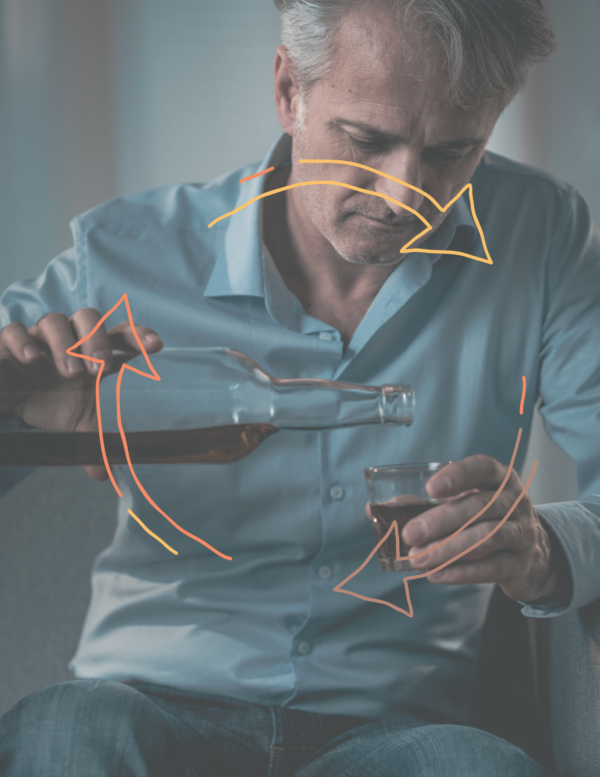In today’s dynamic and often chaotic world, many individuals grapple with the complexities of trauma and addiction. Central New Jersey, with its diverse population, is no exception. Understanding the intricate connection between trauma and addiction is vital for anyone on the path to recovery or supporting someone on their journey.
As the relationship between trauma and substance abuse grows clearer, therapy becomes an essential tool in the pursuit of wellness. Let’s explore this critical link and how those in Central New Jersey can navigate these waters with guidance, hope, and resilience.
Understanding the Link Between Trauma and Addiction
Trauma and addiction often exist in a symbiotic relationship, where one can intensify the other. Delving deeper into the mechanics of this relationship, one can find a complex interplay of psychological, physiological, and environmental factors.
The threads connecting psychological trauma, childhood trauma, post-traumatic stress disorder, and addiction weave a complex tapestry of human experience. The intersectionality of these issues underscores the importance of holistic therapeutic approaches that address not just the symptom (substance abuse) but also the root causes (traumatic events).
How Location Plays a Part in Traumatic Events & Substance Use
Central New Jersey, with its vibrant communities and unique challenges, has seen its share of trauma-related addictions. Its location, bridging major cities and housing a diverse population, brings urban and suburban issues. The area’s demographics, economy, and the daily pressures its residents face make it critical to address this interconnected issue head-on, offering resources tailored to its unique needs.
So, why is Central New Jersey a significant focal point in this discussion? Let’s get a bit personal here. You see, Central New Jersey isn’t just a geographic location; it’s a tapestry of lives interwoven with stories of triumphs, struggles, dreams, and realities. The area, bridging major cities and housing a potpourri of cultures, faces a mix of unique urban and suburban dilemmas. It’s also where Overcome Wellness & Recovery is located.
So, Overcome Wellness & Recovery understands this like no other. Every individual walking through the doors of Overcome Wellness & Recovery brings with them their personal stories and the essence of Central New Jersey. The center’s deep-rooted presence in the region makes it an integral part of the community’s fabric, perfectly positioned to address the intertwined issues of trauma and addiction head-on.
Breaking the Cycle: Understanding, Intervening, and Healing
The cycle of trauma and addiction is like an insidious dance, where one leads, and the other follows, both deeply entwined in a difficult-to-disrupt rhythm. To truly make a change, it’s imperative not just to recognize the cycle but to intervene and establish paths to healing actively. Here’s a deeper look into breaking this relentless cycle:

Therapeutic Approaches for Trauma and Addiction
Traditional Therapy
Traditional therapy methods have evolved, adapting to the needs of those seeking help. Among these advancements, Intensive Outpatient Programs (IOP), Partial Hospitalization Programs (PHP), and Dual Diagnosis have emerged as crucial tools in addressing a broad spectrum of mental health and substance abuse issues. Let’s delve deeper into each of these:
Holistic Approaches
Holistic therapy goes beyond the traditional focus on individual symptoms and seeks to treat the whole person. By considering physical, mental, emotional, social, and spiritual well-being, holistic methods offer a comprehensive approach to healing. Let’s explore the nuances of holistic therapy:

Take Action for a Renewed Tomorrow:
Understanding the deep connections between trauma and addiction is the first step, but taking action is where transformation begins. If you or someone you know is grappling with the effects of trauma and its intertwining with addiction, know there’s hope.
Overcome Wellness & Recovery in Central New Jersey offers a comprehensive approach, blending traditional and holistic therapies tailored to your unique needs. Remember, breaking the cycle and embarking on a healing journey is not just about addressing symptoms – it’s about rediscovering life’s worth and rekindling inner strength.
Don’t wait for tomorrow; reach out to Overcome Wellness & Recovery today and step into a brighter, healthier, and more fulfilling future. Your journey to healing and wholeness is just a call away.

